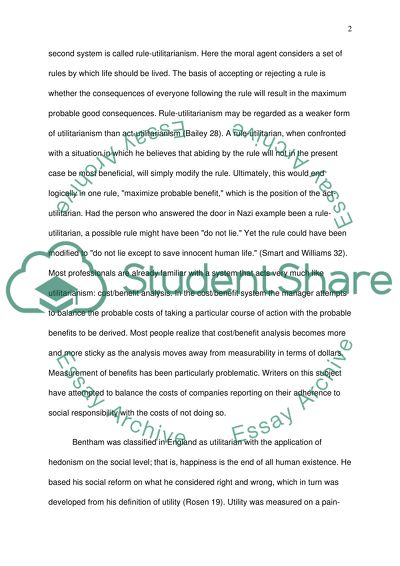Cite this document
(“The theory of utilitarianism Essay Example | Topics and Well Written Essays - 1250 words”, n.d.)
The theory of utilitarianism Essay Example | Topics and Well Written Essays - 1250 words. Retrieved from https://studentshare.org/philosophy/1526501-utilitarianism
The theory of utilitarianism Essay Example | Topics and Well Written Essays - 1250 words. Retrieved from https://studentshare.org/philosophy/1526501-utilitarianism
(The Theory of Utilitarianism Essay Example | Topics and Well Written Essays - 1250 Words)
The Theory of Utilitarianism Essay Example | Topics and Well Written Essays - 1250 Words. https://studentshare.org/philosophy/1526501-utilitarianism.
The Theory of Utilitarianism Essay Example | Topics and Well Written Essays - 1250 Words. https://studentshare.org/philosophy/1526501-utilitarianism.
“The Theory of Utilitarianism Essay Example | Topics and Well Written Essays - 1250 Words”, n.d. https://studentshare.org/philosophy/1526501-utilitarianism.


